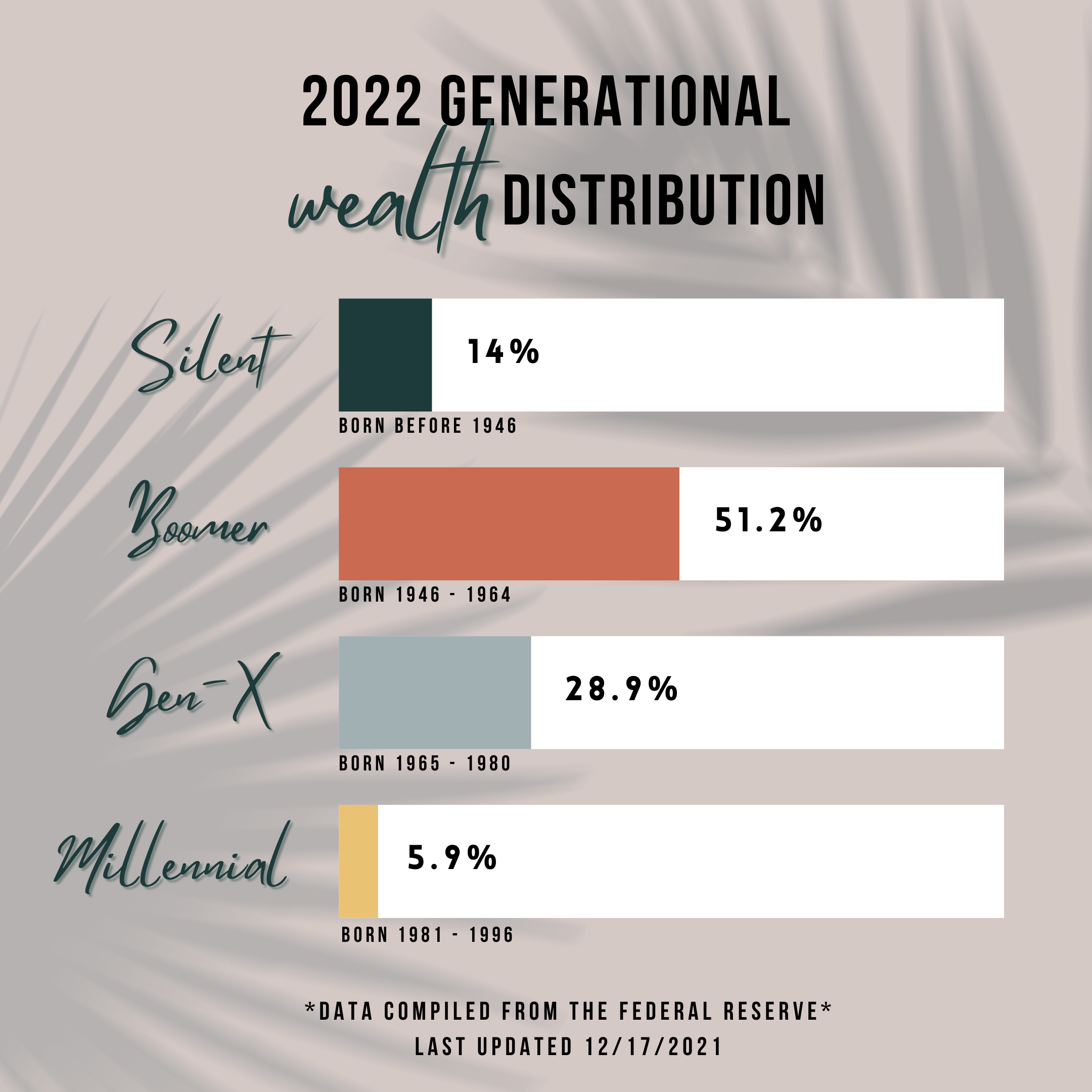2020 was a year we will not soon forget. In many ways, we are still reliving the same nightmare of the pandemic even now, two years later.
It may be another decade before we fully understand the ramifications of what we as an American society were forced to contend with in those early stages of the pandemic. Our routines, lifestyles, health, politics, and relationships were called into question as though they were ripped from our grasp and shaken like a child’s snow globe. Even now I imagine you are still waiting to see where the pieces fall.
One of the many ramifications of the 2020 pandemic is what we now call the Great Resignation. As we enter 2022, there is little doubt in my mind that your career is one of the many pieces of your life you hope to secure going into the new year.

Maybe you’ve begun to question the security of staying with your current employer. Maybe your life changed so dramatically that your current career path no longer affords you the income or lifestyle you require. Maybe you are burned out from the current labor shortage of essential workers and ready to risk opportunities you were too nervous to consider previously.
Or maybe you are an employer facing the highest turnover risk you’ve ever experienced and wondering what you can do to retain your most valuable workers.
If one of these situations hits a little too close to home, continue reading to learn more about the Great Resignation and how it might be shaping new opportunities for you in 2022.
Why Are So Many Americans Quitting Their Jobs?
I want you to think back to those early days and remember the questions that undoubtedly stole many hours of sleep in those first months of the pandemic:
- Am I going to lose my job?
- Do I risk exposure by going to the grocery store to feed my family?
- How am I supposed to work now that my kids’ school is closed?
- How can I possibly be as effective working from home as I was in the office?
- How long is this going to last? Two weeks? A month? A year?
When the world essentially shut down back in early 2020, we found ourselves sitting alone for months on end with little else to do than to ponder these questions and reflect on the futures we previously felt so secure about.
Two years later, it is little wonder that the priorities and world views we were forced to contend with have resulted in an ever-increasing resignation rate across a multitude of industries and fields in the job market.
Many would be quick to blame the great resignation on factors such as welfare or laziness, but I wouldn’t be so quick to jump to such conclusions. The Great Resignation, if nothing else, has exposed to us that the traditional career path is changing. Now is the time to consider what new factors affect the job market in order to take advantage of this historic opportunity.
3 Key Takeaways from the Great Resignation
1) The Priorities of the Millennial Workforce Have Changed

Gone are the days of working at the same company for the full duration of your professional career.
While this is perhaps one of the most widely criticized traits of the millennial generation, it is vital that you pay attention to this trend.
Why? Regardless of whether you see this as a step in the right direction or not, millennials make up approximately 35% of the United States work force. Look at the employee roster of any thriving business and you’ll find that 1 in 3 employees are between the ages of 25 and 40. This makes them by far the most influential generation in this conversation. Here are the realities they are facing:
A Growing Wealth Gap

Crippling student debt, the rising cost of childcare, increased cost in housing and inflation are just a few of the factors affecting American workers today.
Millennials, more than previous generations, are now forced to confront the fact that they often cannot afford to stay with the same company or employer — even though many report the desire to do so. According to the Federal Reserve, the growing gap in generational wealth distribution is placing greater pressure on employees to pursue multiple streams of revenue.
This is why many millennials now prioritize healthy work/life boundaries over long-term growth in a company in order to balance their growing list of responsibilities between multiple employers. Remember, this is not the first economic recession this generation has fallen victim to, so relying on a single employer to take care of them in such unpredictable times is not a decision they would take lightly.
Generational Bias
Millennials are not strangers to feeling targeted as the scapegoats for societal problems. According to a study conducted by David P. Castanza et al. for the Journal of Business and Psychology and later reported in the Harvard Business Review, the difference in performance between various generations in the workplace is negligible, yet the impact of such bias has proven to be monumental. When the intentions of every decision made by this generation are written off as selfish or entitled, it’s no wonder that record numbers of millennials report that company loyalty is an outdated reason to stay at a job that not fulfill them.
Growing Distrust of Large Corporations
Access to the internet has shed some much-needed exposure on the less than ethical practices that many large corporate machines have previously allowed to go unnoticed. This is especially true as it relates to how each business treated its employees during the height of the pandemic. While the questionable actions of some corporations by no means reflect those of all large businesses, it has inevitably placed a higher degree of scrutiny and pressure on employers to operate at a greater level of transparency. As a result, this distrust in corporations has led to an increased level of support for small and local businesses.
2) Time is Now Our Most Valuable Resource

The pandemic, if nothing else, forced the world to reconsider its priorities.
For many, the slower pace of life, increased time with family, and the flexibility offered by remote work brought into stark awareness the benefits of a more balanced lifestyle.
For others, time with loved ones was stolen away as travel became more dangerous and challenging, keeping them separated from friends and family for even years at a time.
The traditional model for employer-employee relationships is an exchange of time for money.
Which brings us to two distinct problems:
1. The value of time has increased dramatically over the pandemic, and
2. time is a limited resource.
While a traditional 9-5 business model may have worked prior to the pandemic, the high quit rate across a variety of industries tells us that employees are no longer willing to sit in an office for 8 hours a day when they have since proven that they can maintain the same if not higher levels of productivity from home often in fewer hours than they worked previously.
Results and productivity are now the currency of choice, and unlike time — there is no limit to what this measurement of success can provide.
3) Salaried Positions Only Offer the Facade of Security

Long have salaried positions been viewed as the more stable and secure route of employment, yet millions of workers in the early stages of the pandemic discovered firsthand that their careers were not as secure as they had once hoped.
Is working as a contract worker or launching a business risky? Of course.
But after two years of living with the fear of layoffs for those not classified as essential workers, many Americans — particularly millennials — are ready to take the plunge into the world of entrepreneurship.
In a study conducted by Startup Nation in 2020:
- 30% of millennials reported starting a side hustle.
- 19% of millennials made that business their full-time income.
- 38% of millennials attribute growing up in the Great Recession as the catalyst which primed them for a life of entrepreneurship.
- 50% of millennials agree that growing up with technology makes entrepreneurship an achievable lifestyle compared to other generations.
After enduring two recessions, millennials are no longer convinced that a salaried position is as secure or stable as they were taught it should be.
Kevin O’Leary, the billionaire famously known as Mr. Wonderful on the hit series Sharktank, released this famous quote on Twitter back in 2018:
A salary is just the drug they give you when they want you to give up on your dreams.
-Kevin O’Leary
While entrepreneurship may not be the right fit for everyone, the Great Resignation is an indicator of just how little security the younger workforce has found in a salary lifestyle which makes the risk of entrepreneurship seem a more viable option.
What This Means for You in 2022
Make no mistake, 2022 brings with it an opportunity we may never again experience in our lifetime.
The Great Resignation has thrown into stark reality the fact that the American workforce is changing.
Myths we have grown to believe are being debunked right before our very eyes — most notably that staying where you are could prove to be just as dangerous as risking something new.
The time to launch your own path is now and it starts with a single decision.
Are you ready to finally bet on yourself and see what it is you’re capable of accomplishing in 2022?
If so, then I urge you to click the link below. I’ve got a roadmap for starting your next business ready for you in my back pocket. Heck, it’s the roadmap I used myself to replace the income for my husband and me doing what I love — and that’s betting on potential new business leaders like you.
It’s time to make a choice friend. What will 2022 hold for you?

- Hide Comments